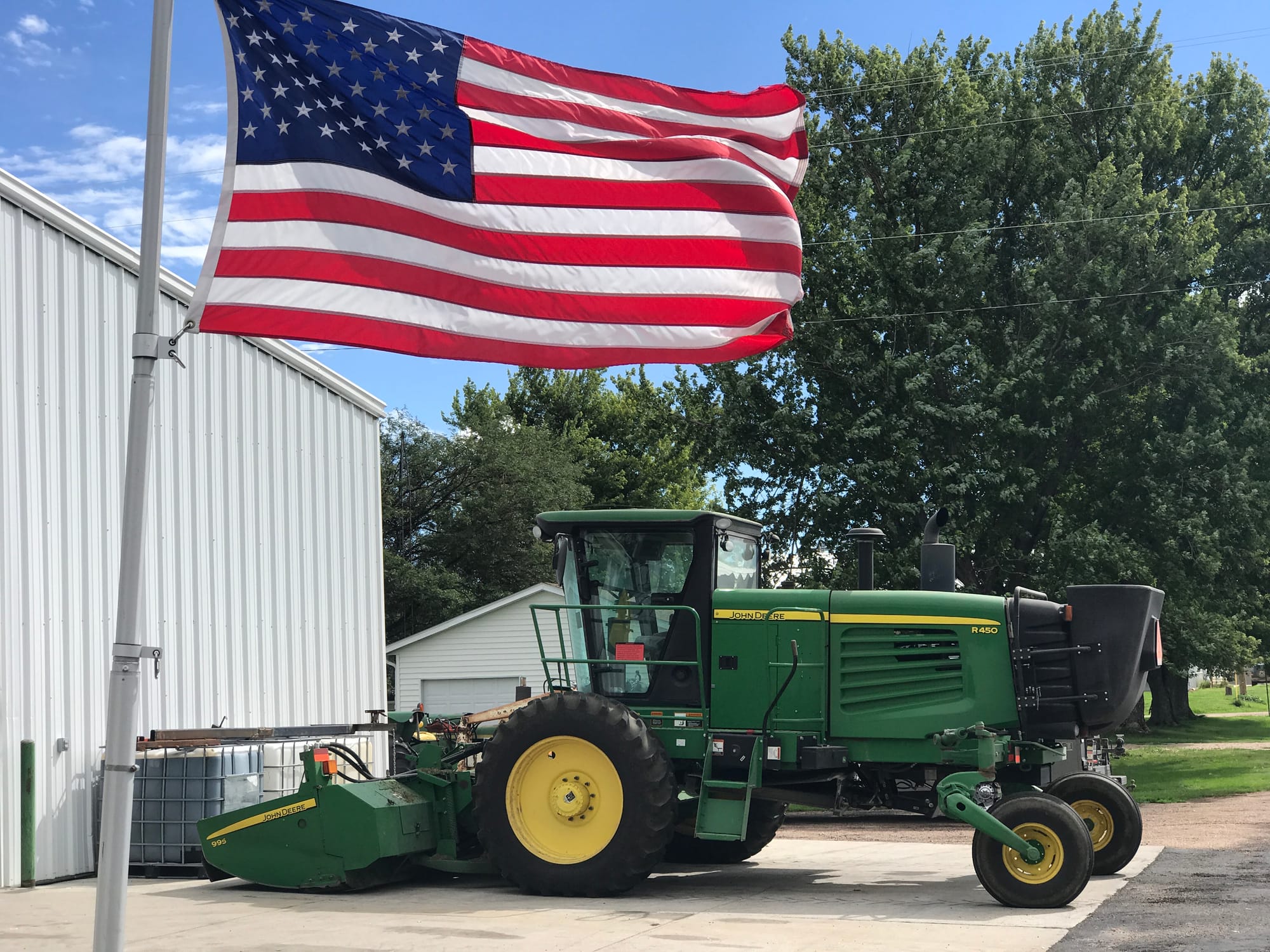A judge rejected John Deere’s motion to dismiss a landmark class action lawsuit over the agricultural giant’s repair monopolies, paving the way for a trial that will determine whether the company’s repair practices are illegal. The case will specifically examine whether Deere has engaged in a “conspiracy” in which Deere and its dealerships have driven up the cost of repair while preventing independent and self-repair of tractors that farmers own.
In a forceful, 89-page memorandum, U.S. District Court Judge Iain Johnson wrote that the founder of John Deere “was an innovative farmer and blacksmith who—with his own hands—fundamentally changed the agricultural industry.” Deere the man “would be deeply disappointed in his namesake corporation” if the plaintiffs can ultimately prove their antitrust allegations against Deere the company, which are voluminous and well-documented. Reuters first reported on Johnson’s memo.
At issue are the many tactics Deere has used to make it more difficult and often impossible for farmers to repair their own tractors, from software locks and “parts pairing” that prevent farmers from replacing parts without the authorization of a Deere dealership.
“Only Deere and Dealer authorized technicians have access to the Repair Tools, and Deere withholds these resources from farmers and independent repair shops,” Johnson wrote.
The case, in which 18 farmers and farms from around the country are suing Deere, is a very important one that has already been in pretrial hell for more than a year. Johnson’s memo rejected a motion to dismiss from Deere, meaning the plaintiffs have legitimate standing to sue and plausible claims against Deere, and the case will proceed in what Johnson wrote “will likely be a long and expensive process.”
This lawsuit, which has already had more than 160 legal documents filed before it even goes to discovery, is one of the most credible and high-profile lawsuits brought against any company for their repair practices in recent memory.
I’ve written often about these problems, which have caused some enterprising farmers to pirate John Deere service software and firmware from private forums and torrent sites.
Over the years, Deere has taken a few small steps that were supposed to make self repair easier, and promised to make specific parts and software available. Johnson’s memo and the plaintiffs cite a few pieces of my earlier reporting on the myriad ways Deere has made repair difficult.
Deere missed a self-imposed deadline to do this, which Johnson notes: “the inability to obtain Repair Tools was evidenced by journalists who attempted to obtain the promised software but were informed that it was not available. After a representation ‘that comprehensive repair and diagnostic equipment was available,’ when questioned where and how these were available, no response was provided.” Johnson also wrote that the “complaint also contains four pages of allegations that, to the extent Deere has made Repair Tools available, those particular Repair Tools are ineffective and insufficient to allow purchasers to either repair their own Tractors or have ‘independent repair shops’ fix the Tractors.”
“The reasonable inference from these allegations is that Deere—by itself or through its agents—repeatedly made public statements that purchasers could make repairs to their own Tractors but the reality was that they couldn’t,” Johnson wrote.


